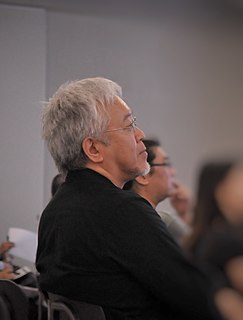A Quote by George Packer
Ideology knows the answer before the question has been asked. Principles are something different: a set of values that have to be adapted to circumstances but not compromised away.
Related Quotes
John Wesley tells of a dream he had. In the dream, he was ushered to the gates of Hell. There he asked, "Are there any Presbyterians here?" "Yes!", came the answer. Then he asked, "Are there any Baptists? Any Episcopalians? Any Methodists?" The answer was Yes! each time. Much distressed, Wesley was then ushered to the gates of Heaven. There he asked the same question, and the answer was No! "No?" To this, Wesley asked, "Who then is inside?" The answer came back, "There are only Christians here."
The morality of compromise' sounds contradictory. Compromise is usually a sign of weakness, or an admission of defeat. Strong men don't compromise, it is said, and principles should never be compromised. I shall argue that strong men, conversely, know when to compromise and that all principles can be compromised to serve a greater principle.
Have you ever heard the wonderful silence just before the dawn? Or the quiet and calm just as a storm ends? Or perhaps you know the silence when you haven't the answer to a question you've been asked, or the hush of a country road at night, or the expectant pause in a roomful of people when someone is just about to speak, or, most beautiful of all, the moment after the door closes and you're all alone in the whole house? Each one is different, you know, and all very beautiful, if you listen carefully.
To be a scientist you have to be willing to live with uncertainty for a long time. Research scientists begin with a question and they take a decade or two to find an answer. Then the answer they get may not even answer the question they thought it would. You have to have a supple enough mind to be open to the possibility that the answer sometimes precedes the question itself.
There is indeed something deeply wrong with a person who lacks principles, who has no moral core. There are, likewise, certainly values that brook no compromise, and I would count among them integrity, fairness, and the avoidance of cruelty. But I have never accepted the argument that principle is compromised by judging each situation on its own merits, with due appreciation of the idiosyncrasy of human motivation and fallibility.







































